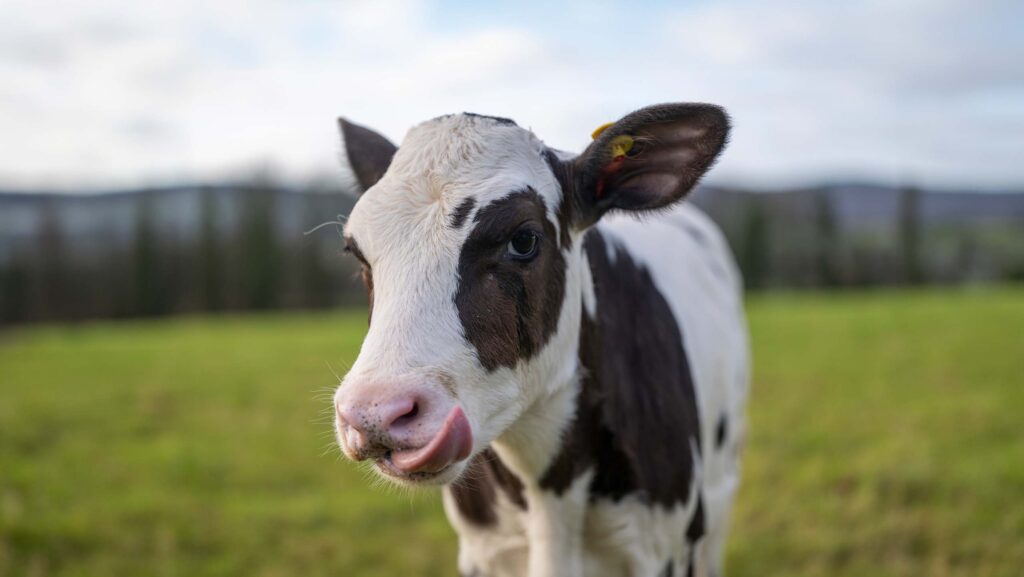IVF calf Hilda marks major step in sustainable dairy farming
 Hilda the IVF calf @ SRUC
Hilda the IVF calf @ SRUC The birth of Hilda, an IVF calf from the Dumfries-based Langhill herd, is being hailed as a groundbreaking achievement in the quest for more sustainable farming practices.
Hilda is the first member of her herd to be born through in vitro fertilisation (IVF) and is part of the Cool Cows project, which aims to breed cattle that produce significantly less of the greenhouse gas methane, helping to reduce the environmental impact of dairy farming.
Veterinary experts and scientists are calling Hilda’s arrival “hugely significant”, as it could accelerate the dairy industry’s journey towards achieving net-zero carbon emissions.
See also: Editor’s View: Why Bovaer bashers should stop and think
The birth marks a major milestone for the UK dairy sector, as it allows researchers to speed up genetic selection and enhance the breeding of methane-efficient cows.
Genetic gain
By using IVF, scientists were able to introduce the next generation of the Langhill herd nearly eight months earlier than traditional breeding methods would allow, doubling the rate of genetic gain and creating a new opportunity to select animals that are both high-producing and eco-friendly.
Professor Richard Dewhurst of Scotland’s Rural College (SRUC), which is leading the Cool Cows project, explained the importance of this innovation.
“With global dairy consumption on the rise, sustainable livestock breeding is crucial,” he said. “The birth of Hilda is a potentially transformative moment for the dairy industry, offering a faster path to breeding methane-efficient cattle.”
The Cool Cows project combines reproductive technologies and genomic tools to select cattle genetics that prioritise reduced methane production while maintaining milk production levels.
The project also aims to create a nucleus herd of highly methane-efficient cows, which will serve as a model for further research and breeding efforts.
The Langhill herd has been an invaluable source of data for more than 50 years, and its involvement in studies on greenhouse gas emissions makes it a vital component of the UK’s sustainable farming efforts.
Potential game-changer
The successful use of IVF, backed by £335,000 of funding from the Digital Dairy Chain, is seen as a potential game-changer in reducing agriculture’s carbon footprint.
Rob Simmons of Paragon Veterinary Group said: “Genetic improvement in methane efficiency is key to ensuring we can provide nutritious food to the public while controlling methane emissions.”
Digital Dairy Chain director Stuart Martin added: “This is a significant milestone in the future of sustainable farming, with results that promise to help mitigate the environmental impact of farming on a global scale.”
